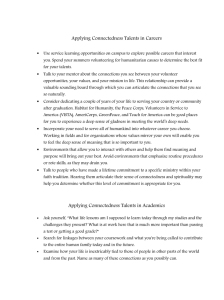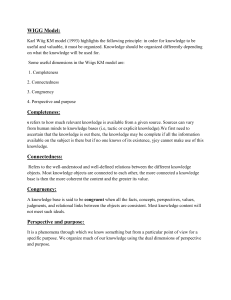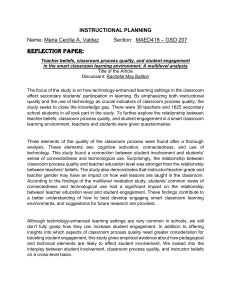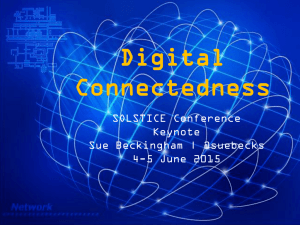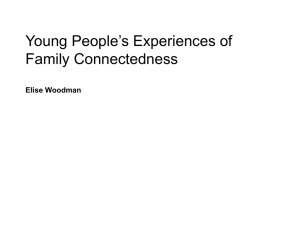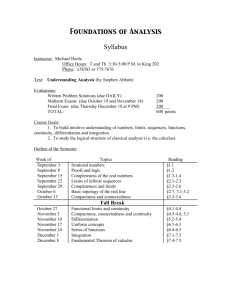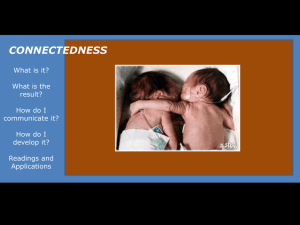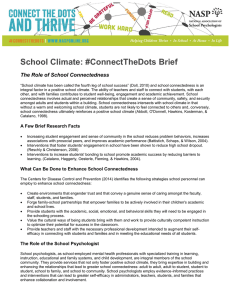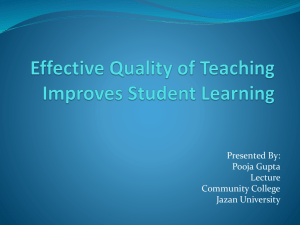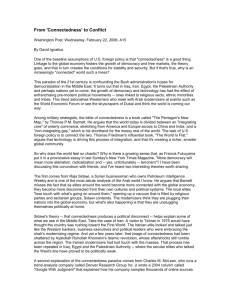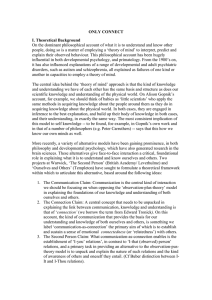vof_exercise_3
advertisement
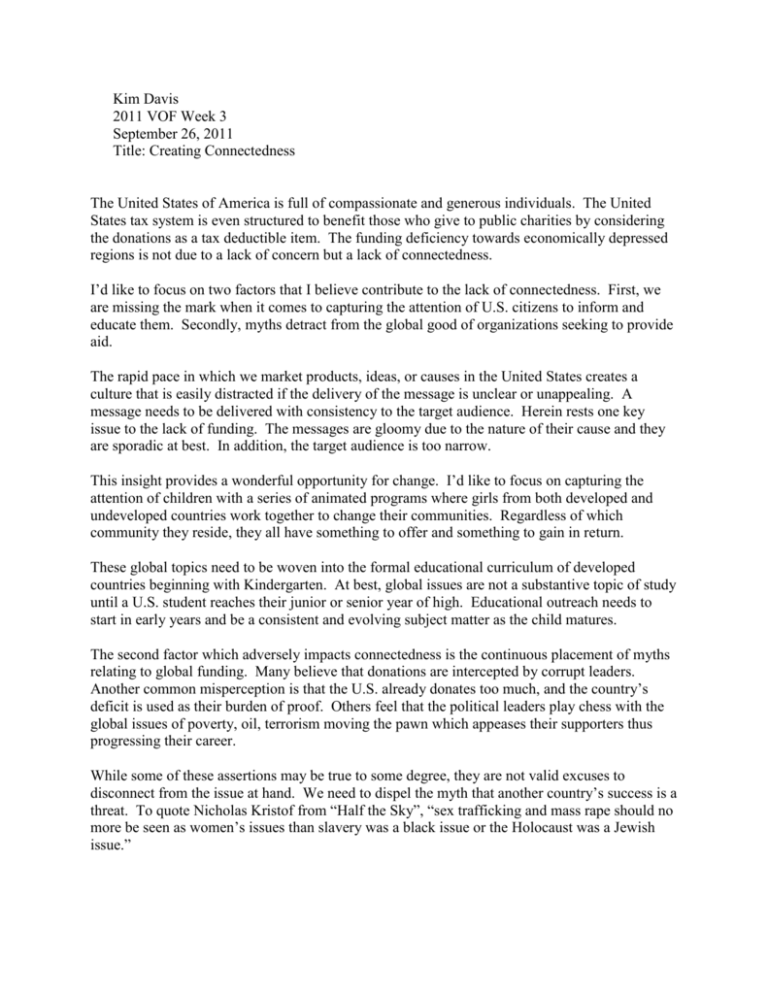
Kim Davis 2011 VOF Week 3 September 26, 2011 Title: Creating Connectedness The United States of America is full of compassionate and generous individuals. The United States tax system is even structured to benefit those who give to public charities by considering the donations as a tax deductible item. The funding deficiency towards economically depressed regions is not due to a lack of concern but a lack of connectedness. I’d like to focus on two factors that I believe contribute to the lack of connectedness. First, we are missing the mark when it comes to capturing the attention of U.S. citizens to inform and educate them. Secondly, myths detract from the global good of organizations seeking to provide aid. The rapid pace in which we market products, ideas, or causes in the United States creates a culture that is easily distracted if the delivery of the message is unclear or unappealing. A message needs to be delivered with consistency to the target audience. Herein rests one key issue to the lack of funding. The messages are gloomy due to the nature of their cause and they are sporadic at best. In addition, the target audience is too narrow. This insight provides a wonderful opportunity for change. I’d like to focus on capturing the attention of children with a series of animated programs where girls from both developed and undeveloped countries work together to change their communities. Regardless of which community they reside, they all have something to offer and something to gain in return. These global topics need to be woven into the formal educational curriculum of developed countries beginning with Kindergarten. At best, global issues are not a substantive topic of study until a U.S. student reaches their junior or senior year of high. Educational outreach needs to start in early years and be a consistent and evolving subject matter as the child matures. The second factor which adversely impacts connectedness is the continuous placement of myths relating to global funding. Many believe that donations are intercepted by corrupt leaders. Another common misperception is that the U.S. already donates too much, and the country’s deficit is used as their burden of proof. Others feel that the political leaders play chess with the global issues of poverty, oil, terrorism moving the pawn which appeases their supporters thus progressing their career. While some of these assertions may be true to some degree, they are not valid excuses to disconnect from the issue at hand. We need to dispel the myth that another country’s success is a threat. To quote Nicholas Kristof from “Half the Sky”, “sex trafficking and mass rape should no more be seen as women’s issues than slavery was a black issue or the Holocaust was a Jewish issue.” Pulse Wire is already positioned to connect women, and people across the globe. Stories of success continue to be written. As such, the ability to connect is available. Focus should be placed to the positive truths and the global impact of why we should connect. Pulse Wire needs to be mainstreamed into communities using strategic marketing tactics which continues to reach an audience across a continuum of stages.
